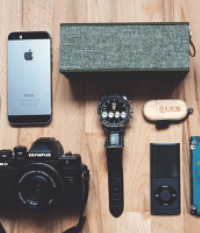Bahamas launches anti-AIDS discrimination campaign
NASSAU, The Bahamas – An ambitious initiative designed to greatly deduce the stigma and discrimination associated with HIV/AIDS was launched on Monday (December 4) by the Ministry of Health and National Insurance and its partners, the Pan American Health Organization/World Health Organization and the National HIV/AIDS Centre.
Health and National Insurance Minister, Senator the Hon. Dr. Bernard Nottage, in his keynote address said “the starting place is saying out loud that prejudice and discrimination against people perceived to be HIV positive is wrong, plain and simple. It is wrong.”
Personnel from a number of government ministries attended the brief launch of the “Ouch! Discrimination does not Protect Against HIV …It Hurts” campaign at the British Colonial Hilton.
Dr. Nottage said, “The dangers of allowing stigmatization of people living with HIV and AIDS to fester are already painfully evident.
Stigmatization can lead to discrimination, ostracism and even violence against people who are already struggling and vulnerable.
“Fear of stigmatization can cause those engaged in risky behaviors to avoid testing. New treatments can allow people living with HIV or AIDS to live productively, but being stigmatized can prevent these people from achieving their full potential in education, care, support, treatment and in the workplace.”
He emphasized that the “moral cancer” that is prejudice “cannot be allowed to fester in the soul of a nation or that nation will undoubtedly sicken morally.”
The Minister noted that in some measure, people feel justified in discriminating against or excluding someone perceived to have engaged in risky behaviors like drug use or homosexual acts. Dr. Nottage declared that this kind of prejudice must be challenged and not tolerated.
“In the Caribbean,” he stated, “most new infections are not the result of IV drug use or same sex encounters, and we face HIV and AIDS all the same. How someone contracts HIV doesn’t seem to matter to the virus, and it shouldn’t matter to us.
“For many in the Caribbean, there is fear at the root of their prejudice. Fear that they too will contract HIV or die of AIDS, so lacking the facts they reject those who are infected, ostracizing them from the emotional support and validation of society.
“Perhaps it is the fact that we are looking into the faces too like our own, faces that belong to fathers just as we are fathers and mothers, just as we are mothers, and sisters and brothers, and wives and husbands. Those living with HIV are just like us, they work at the same jobs, attend the same schools; they live next door to us, and aspire to the same dreams.”
According to Dr. Nottage, in stigmatizing people living with HIV and AIDS, “we reduce them, discount them and see them only through the lens of infection.”
He added, “We create a fictitious distance between them and us, forgetting all the things that we share and have in common, and from the false safety of that distance we look down on them concealing our fear with disdain. This is a comforting lie that we are telling ourselves and it has to stop now.”
Dr. Nottage underscored that anyone can become infected if the best choices are not made.
He noted that in The Bahamas, there are almost 6,000 people living with HIV or AIDS, but unfortunately, only 2,000 are taking advantage of the free medical services that are available.
He urged people who are not infected to be compassionate and careful.
“Abstinence is the only guaranteed way to prevent sexual transmission of HIV,” said Dr. Nottage. “If we are going to be sexually active then being faithful to one partner who is faithful to us is the safest way to go. Condoms remain the best protection against HIV for those who are sexually active so wear a condom every time.
“Know the facts about HIV and AIDS and you become part of the solution. If everyone knows the facts about HIV then prejudice and stigma won’t be a problem.”
PAHO/WHO Bahamas Representative, Ms. Lynda Campbell said treatment of the disease is available.
“The Ministry of Health,” she stated, “has an ongoing campaign to encourage people to come in and get tested and to get everyone who needs treatment enrolled in a treatment program. While this is not a cure for HIV, it does allow people who are HIV positive to live productive lives that could hardly be imagined even 10 years ago.
“This is truly one of the most significant developments in medicine in recent years.”
The “Ouch” anti-discrimination and anti-stigmatization campaign seeks to change from the cruelty or rejection to a greater sense of acceptance and tolerance. It appeals for this type of behavior change, not only on the part of people at the general community level, but also, more specifically, to health care workers and the private sector.
During the launch, posters, booklets and other paraphernalia were released for general dissemination.


